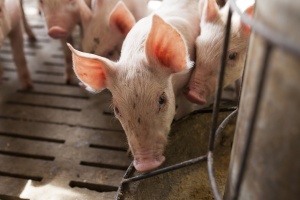What’s the safest choice in the dairy aisle?
Dairy farmers follow strict standards, such as testing their milk before it leaves the farm, to ensure milk is safe and wholesome. The milk they produce is their badge of honor and their reputation. It’s also the same milk their families drinks. So, rest assured milk is safe for you and your family.
Within the dairy case, there are countless choices with claims, such as organic and antibiotic-free. The good news is that all milk, as long as it is pasteurized, is wholesome, safe and nutritious. Safety is always of the utmost importance, and the Food and Drug Administration (FDA) and the Centers for Disease Control and Prevention (CDC) recommend drinking only pasteurized milk. Don’t fret, however, because “pasteurization does not significantly change the nutritional value of milk,” according to the CDC.
Any additional claims seen in the supermarket are a result of milk companies’ response to consumer requests for choices in the dairy aisle.
More about these claims:
Antibiotics: Milk and dairy products are among the most stringently regulated foods in this country. Some cows need antibiotics when sick, but the milk from those cows is not allowed to enter the milk supply until the antibiotics have cleared their system. If, by chance, milk tests positive for antibiotics it is immediately discarded and does not enter the retail milk supply.
Milk Hormones: All milk, even organic, naturally contains very small amounts of hormones. The U.S. Food and Drug Administration (FDA) has concluded there is no significant difference between the milk from cows that are supplemented with growth hormone (rbST) and milk from cows that are not treated with rbST. Milk hormone levels from cows that are given rbST are within the normal range. You’d actually be hard-pressed to find any milk from cows treated with rBST in Illinois, though, because most coops have asked their farmers not to use it due to consumer demand.
Organic Milk: Strict government standards ensure that both conventionally produced and organic milk are equally safe and nutritious. The USDA and Academy of Nutrition and Dietetics agree – organic milk and regular milk contain the same unique package of nutrients. Plus, most consumers say there is little to no taste difference between organic milk vs regular milk.
No matter which milk jug you reach for at the grocery store, you’re getting a safe product packed with 9 essential nutrients for your family!
Originally posted by Midwest Dairy Association.










0 Comments